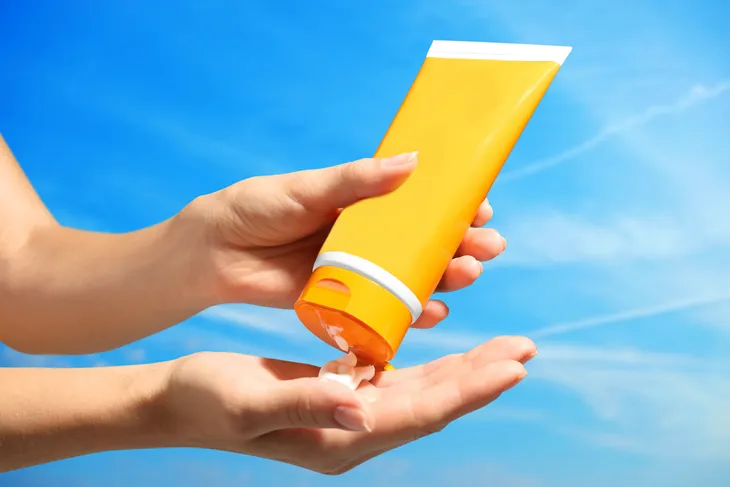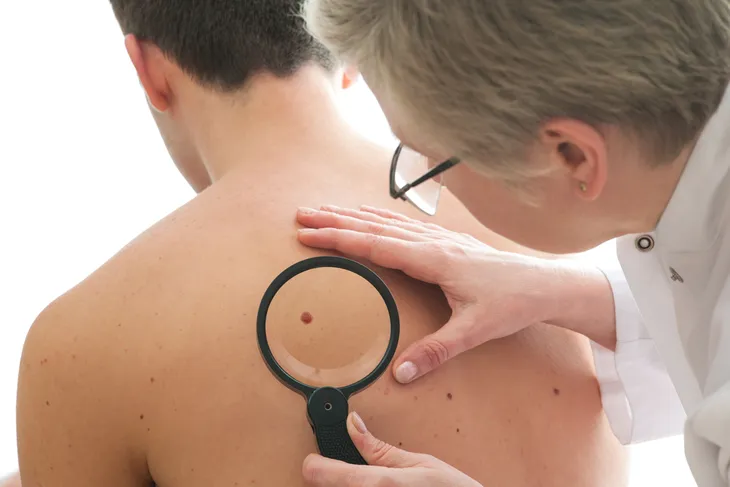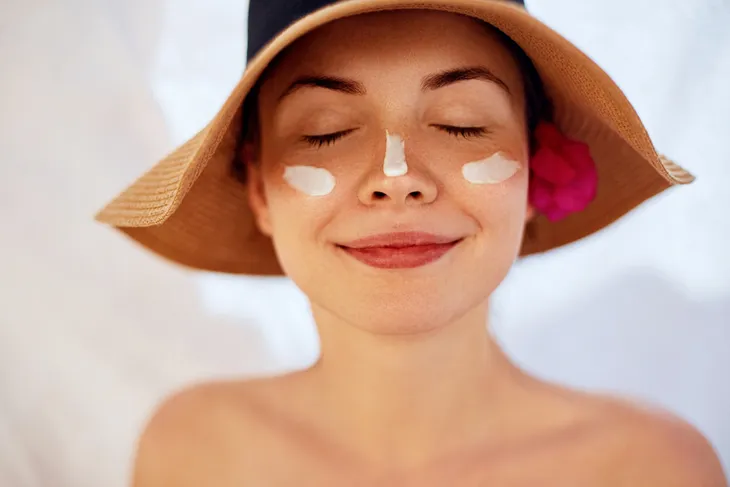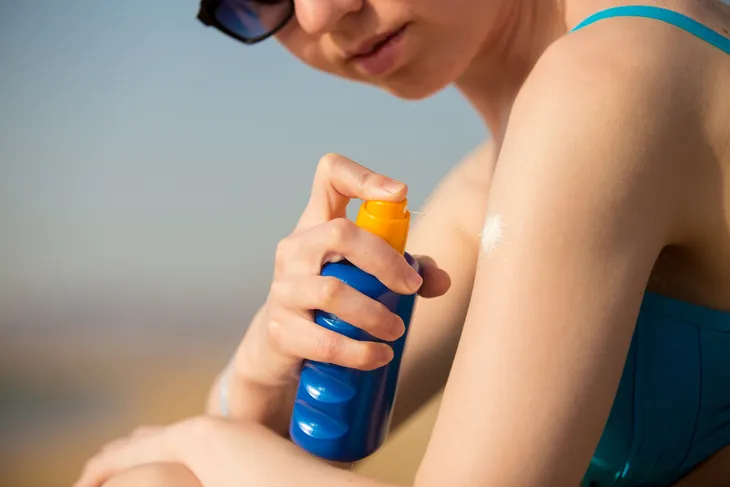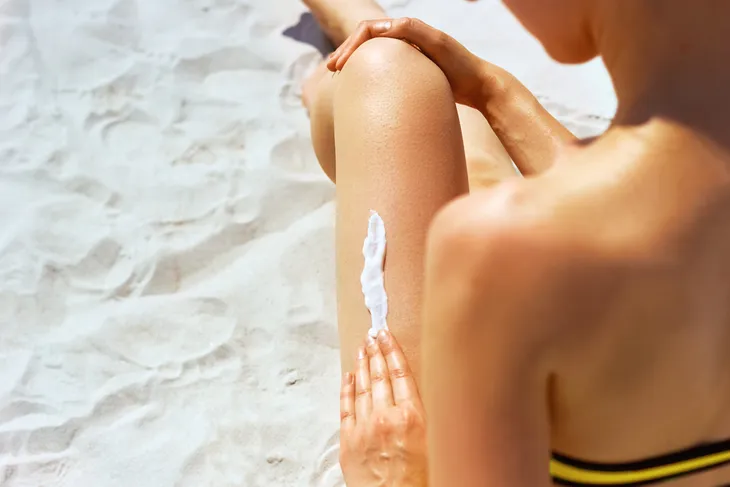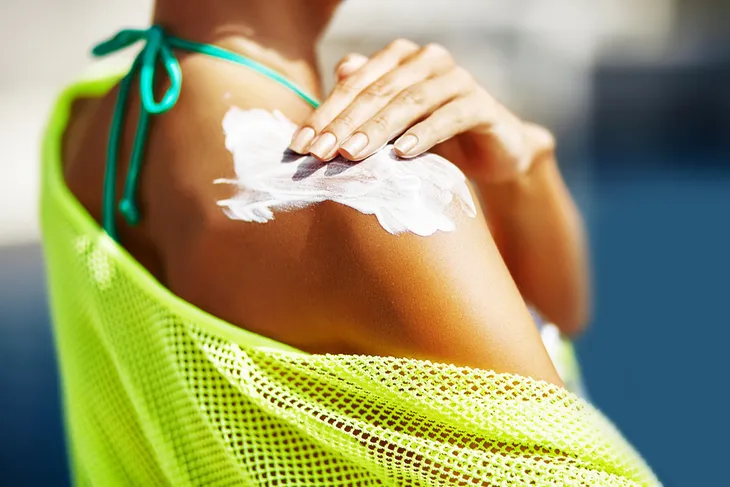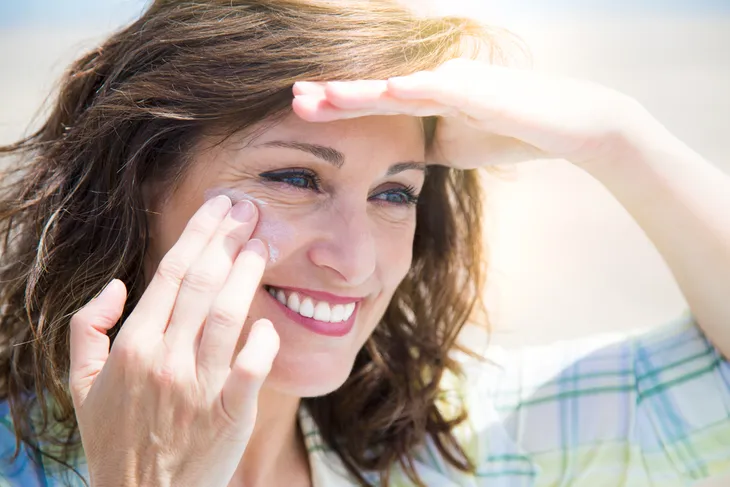There was a time, many years ago now it seems when you only felt compelled to use sunscreen on trips to the beach or to a friend’s swimming pool — moments when you knew you’d be in the sun for an extended period of time. But today, with our greater understanding of the health threats posed by over-exposure to the sun’s ultraviolet rays, there’s increasing pressure on people to use sunscreen every day, even applying it on multiple occasions throughout the day.
In fact, these days we’re told we should be using sunscreen even on more-or-less cloudy days amidst any season, including fall and winter. But what, exactly, have we learned over the past few decades? Why is it increasingly important to use sunscreen whenever we plan to head outside, whether it’s for work, play, or something in between? Let’s take a look at some of the most vital reasons to use sunscreen regularly.
Protect Your Skin Today
You can do a lot of damage to your skin in a short amount of time by neglecting to protect your skin from the sun’s damaging ultraviolet rays. As the earth’s ozone layer continues to face persistent threats from man-made ecological problems, it’s becoming progressively more important to wear sunscreen, even if that means avoiding short-term problems, like sunburn.
Today, it takes shocking little time and exposure to the sun to get a nasty sunburn. Experts insist that just 10 to 20 minutes of exposure to direct sunlight can result in a burn that may last several days. Those who choose to forego sunscreen for extended periods of time in the sun can expect painful, irritated and red skin that’s painful to the touch for a few days. It’s a problem that’s likely to prevent someone from easily completing even the most basic tasks, from getting dressed in the morning to easily drifting off to sleep at night.
Reduce Skin Cancer Risk
Getting a painful sunburn is no fun — the stinging, hot sensation can last for days and can make sleeping, wearing clothes, even just lounging around the house really uncomfortable. But it’s not the worst part of failing to protect your skin with sunscreen: instead, the real threat is skin cancer, a serious health issue that’s far more likely to impact you if you consistently fail to help block your skin from the sun’s damaging ultraviolet rays by not using sunscreen.
While looking tanned is widely seen as desirable, and getting vitamin D from the sun’s rays can help you feel better, mentally, going into the sun without protection over the course of many years can significantly increase one’s chances of developing skin cancer, a potentially fatal disease. Additionally, skin cancer can be hard to identify and diagnose, meaning it can fly under the radar until it’s too late. Don’t take such a risk: wear sunscreen today.
Avoid Premature Aging of the Skin
There’s a multi-billion-dollar industry dedicated to helping older adults reduce the appearance of wrinkles, giving them the appearance of younger skin. But here’s the problem: many of those people could have avoided spending all that money on anti-wrinkle creams and other types of treatment by simply using sunscreen when they went in the sun.
Repeated, prolonged exposure to the sun without using the protection offered via sunscreen can rapidly age the skin by dehydrating it. Unfortunately, this problem won’t make itself known right away — in fact, for years, the skin may continue to appear young and vibrant. But this repeated exposure to the sun’s harmful rays will add up, and many individuals who avoided using sunscreen will find that their skin looks and feels far older than that of their friends who made the decision to protect their body.
Save Your Face
Going out into the hot sun without sunscreen drastically increases your chances of getting a painful sunburn on any part of your body that’s exposed. But doing this may be particularly problematic for the face, which is more likely than other parts of the skin to be affected by acne. Together, acne and skin exposed to the sun’s ultraviolet rays can intensify the damage.
This is because skin that suffers from acne is already sensitive, meaning it’s even more important to protect it using sunscreen. Failing to do so may cause painful rashes that last longer than a typical sunburn and may even lead to permanent scarring. And all of this is compounded if one is using an acne medication that makes the skin more sensitive to sun exposure.
 Shutterstock/Rido
Shutterstock/RidoBe Safe From Sensitivities
Prolonged exposure to the sun’s ultraviolet rays without using sunscreen can pose a serious health problem to just about anyone, but it’s even more dangerous for those with allergies or other sensitivities to the sun. And more people experience these problems than you may think.
Sun allergies and sensitivities are actually quite prominent and failing to protect the skin by using sunscreen can lead to painful skin irritation that can resemble a major acne breakout, blisters, even open sores. If you’re spending time in the sun as part of an effort to get a tan and look better, this may defeat the whole purpose of exposing yourself to damaging UV rays. To learn more about your sensitivity to the sun and a possible sun allergy, talk to your family doctor or allergist about the issue.
Keep Skin Feeling and Looking Young
There’s no denying the irony that many of the people who love the look of tanned skin are the same individuals who spend hundreds, even thousands of dollars on skin treatments designed to help keep the skin looking and feeling younger. That’s because tanning, whether that means being exposed to actual or imitated sunlight, almost always ages the skin.
Here’s the problem: tanning, which usually means not wearing a capable sunscreen, reduces the parts of the skin — including collagen, keratin, and elastin — that help keep it looking and feeling young. That means people who regularly tan without sunscreen are spending their precious time creating a problem that they’ll need to use expensive skin treatments to fix, now or later. Save yourself time, energy, and money by using a spray-on tan.
No Mess, No Fuss
It used to be that many sunscreen options left the skin feeling sticky and oily — same goes for your hands after applying it. But the formula used by many sunscreen manufacturers has come a long way since then — today, the average sunscreen is designed to avoid making a mess.
In fact, many of today’s sunscreens can be found in stick formulation or even brush on, best for reapplication so you don’t need to get your hands dirty. And there are sunscreens that are thinner in texture, meaning you won’t need to run to the washroom to clean off your hands after the application. In the end, that means it’s less hassle to use sunscreen, and that’s definitely a good thing.
Moisturize the Skin
In the past, sunscreens performed one basic function: protecting the skin from the sun’s damaging ultraviolet rays. And that’s fine, as that was what most sunscreen options advertised. But today, many sunscreens provide so much more: in addition to protecting the skin from the sun, they can help moisturize the skin.
What’s the value of offering a moisturizer in addition to properties that protect the skin from the sun? It’s simple: a sunscreen that’s also a moisturizer can serve two important functions, including protecting the skin while restoring its elasticity. This can give the sunscreen and your skin what they need to ensure your body remains protected from the sun, even on the hottest and brightest days of summer. (While it’s worth noting that many moisturizers also help protect against the sun’s UV rays, don’t use these for sunscreen purposes unless the packaging says this is acceptable).
They’re Water Resistant
It used to be that you’d have to apply sunscreen before and after you went in the water. Not only did this make it really easy to get a sunburn, but it meant having to get gross, sticky sunscreen all over your hands on multiple occasions during a long day at the local swimming pool or the beach.
Today, that’s long since changed. Most of the popular sunscreen options are water resistant for either 40 or 80-minutes. You will still need to recommend after being in the water for the times listed. But they can still provide adequate protection for the allotted times even when you are submerged in water.
They’re Affordable
In the past, sunscreen could be expensive, particularly if you wanted one that offered extra-long protection from the sun’s damaging ultraviolet rays. If you wanted something that wouldn’t immediately rub off the moment you stepped in the water, that would be even more costly.
But that’s rarely the case today. While sunscreen options continue to range in price based on their level of protection and if they’re waterproof, by and large the cost has come down. Why? Primarily because the technology required to make such products has been refined to the point where it’s no longer quite as costly to produce and sell them. In the end, that means a capable sunscreen is no longer quite so harmful to the daily budget.
Safe for Sore Eyes
Yesterday’s sunscreens had one major issue when you wore them on your face and carried out any sort of even remotely athletic activity: when you started to sweat, the sunscreen often ran from the forehead and into the eyes, where they stung like crazy, leaving the eyes dry and uncomfortable. For anyone engaged in a semi-serious physical activity, like playing a sport to going for a run to doing work outside, this was a huge problem.
Today, many sunscreen manufacturers have created products that won’t run as easily, and if they do, won’t provide the stinging, painful sensation if they get in the eyes. That’s a nice change from yesteryear and another great reason to use sunscreen every day. To be safe, stick to mineral based sunscreens as they tend to burn less.
Safe for Pregnant Women To Use
Many pregnant women wonder if sunscreen is safe for them to use. The simple answer is yes, the somewhat longer answer is yes, you really should use sunscreen when you are pregnant. In fact, most experts recommend expecting women use a more potent sunscreen, like one with an SPF of 30 or more.
That said, some sunscreens do contain chemicals that, should they enter the bloodstream, could have a negative impact on a pregnancy. For this reason, it’s important that all pregnant women ask their pharmacist about sunscreen options designed specifically for them.

